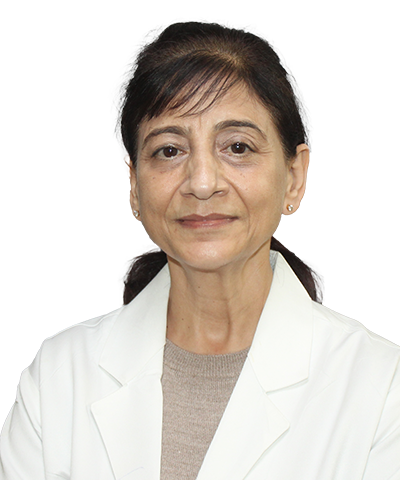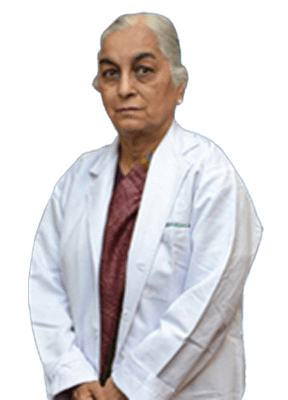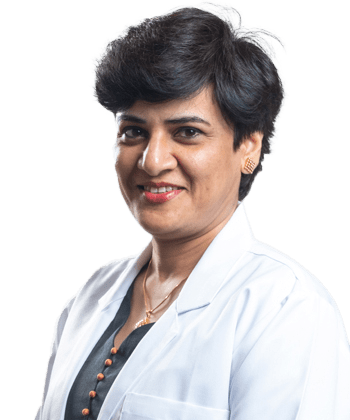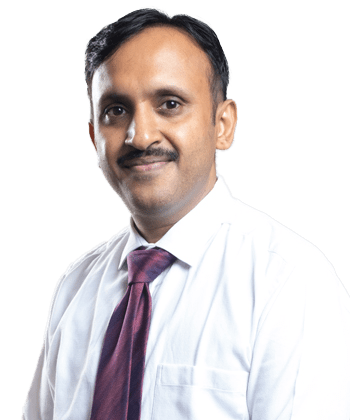 Dr. Sonia Badwal
Dr. Sonia Badwal
 Dr. Kusum Verma
Dr. Kusum Verma
 Dr. Shashi Dhawan
Dr. Shashi Dhawan
 Dr. Pooja Bakshi
Dr. Pooja Bakshi
 Dr. Seema Rao
Dr. Seema Rao
 Dr. Pallav Gupta
Dr. Pallav Gupta
 Dr. Poojan Agarwal
Dr. Poojan Agarwal
The department has been an important component of SGRH from its inception because of the crucial role it plays in patient care. In the early years however, it was handling all pathology services including Anatomic, Clinical, Chemical and Haematologic pathology. In the early 1990s separate departments of Haematology and Biochemistry were established and the anatomic pathology service including both Histopathology and Cytopathology was handled by the ‘Department of Histopathology’. All through, the pathology services have been headed by eminent and highly experienced pathologists. With development of advanced technologies and specializations in different aspects of Anatomic pathology it was considered necessary in late 2005 to change the name of department to ‘Department of Pathology’ with two separate divisions, Histopathology and Cytopathology.
Each division is manned by well qualified senior staff with long experience and several of them are nationally and internationally recognized for their contribution to diagnosis, research and education in deferent important diseases. The expertise of consultants attracts a number of referrals for difficult and controversial cases from outside. Technical support by a large technology staff is of high quality. The department is accredited by NABL (National Accreditation Board for Testing and Calibration of Laboratories). The department serves three essential functions: Patient care service, Education and Biomedical Research.
1. Division of Histopathology
Areas of special expertise are available from faculty staff including diseases of liver, stomach and intestine, brain and nerves, kidney, heart and blood vessels, bones, skin, endocrines, and all forms of cancer and other tumors. Latest and advanced equipments and technologies some of which are automated but many others that need redefined manual handling and expertise are used in the procedures for exact disease identification. Broad spectrums of immunohistochemical, immunofluorescence, histochemical and when needed ultrastructural techniques that precisely identify abnormalities and disease processes are used.
Except when special tests are needed reports in Cytopathology and Histopathology are ready on the same day and within 36 hrs of specimen receipt respectively. In case an urgent treatment decision is to be made on the basis of histopathological diagnosis a report can be given within 24 hrs. Ultra urgent reporting on tissues taken out while the patient is on the operating table is given within 10-15 minutes. This helps the surgeon take on the spot decision on how to proceed with the surgery as well as immediate future management. The department has devised some very fast procedures for special tests like immunohistochemical techniques and new innovative methods for immunofluorescence for auto-antibodies.All processed material on which diagnosis are given, all written reports (hard and soft copies) are stored. These can be retrieved for reference and review when needed.
Special tests:
Immunohistochemistry: Extensive panel of more than hundred antibodies are available for helping in function-related structural evaluation for specific identification needed, particularly for cancers and other tumors.Immunologic diseases are diagnosed by immunofluorescence using a panel of eight antibodies including IgG, IgA, IgM, C3, C1q, fibrin, Kappa & Lambda light chains. It is done routinely for all kidney biopsies and for some skin biopsies. Auto-antibodies like antinuclear antibody (ANA), Antismooth muscle antibody (ASMA), Antimitochondrial antibody (AMA), Antiliver-kidney microsomal antibody (ALKMA) are done by immunofluorescence.
2. Division of Cytopathology
This is manned by three well trained Cytopathologists ably supported by residents and Technical staff.
Diagnosis Facility:
Laboratory caters to out patient as well as indoor patients from all specialties. Diagnosis of not only malignancies, but of many infectious diseases like tuberculosis, fungal diseases and parasitic diseases is provided on a variety of samples like vaginal/cervical smears; Fluids including pleural, peritoneal, pericardial and cerebrospinal; urine; Respiratory material like sputum, Bronchial washes, Broncho-alveolar lavage; and Brushings from various sites. In many cases, cytologic examination provides the first lead of diagnosis.
Liquid Base Cytology (LBC): Laboratory processes vaginal/cervical smears using LBC technology – Sure path system. This provides reports with higher accuracy than conventional pap smears.
Fine Needle Aspiration Cytology (FNAC): Diagnosis of superficial and palpable lumps as well as deep seated lesions performed under ultrasound or CT guidance is being provided with a high degree of accuracy. Aspiration of superficial and palpable lumps is done by cytopathologists in the laboratory itself. Immunocytochemistry is being utilized for correct typing of tumors, where indicated. FNAC has obviated need for open biopsy in significant numbers of cases.
3. Endoscopic Guided FNAC
One of the few laboratories where reporting of EUS-FNA (Endoscopic Ultrasound guided FNA) and EBUS-TBNA (Endobronchial Ultrasound guided-Transbronchial Needle Aspiration) is being done. Endoscopic guided FNAC are done under conscious sedation and avoids open biopsies.
EUS-FNA: In conjunction with gastroenterologists, FNA specimens from pancreatic masses, intra-abdominal organs and mediastinal lymph nodes are being obtained and examined.
EBUS-TBNA is a recently developed technology. It is done in conjunction with chest physicians and helps in obtaining and evaluating FNA samples from mediastinal and lung masses.
HPV-DNA (High Risk) determination in cervical secretions has been set up using Hybrid Capture II. It is based on the principle of chemiluminescence and tests for thirteen high risk strains of HPV. Test has value in triaging patients with cytologic abnormalities detected on Pap smear. It is also of value as adjunct to Pap smear for screening of pre-neoplastic and neoplastic lesions of uterine cervix. HPV-DNA has a higher sensitivity but lower specificity when compared to Pap smears. Two tests combined have high sensitivity as well as specificity. Screening interval can be increased 3-5 years from 1 year if both tests are negative.
4. Graduate Education and Academics
The department has a very active in-service residency training programme for the Diplomate of the National Board (DNB) in Pathology. Most faculty staff have long experience in undergraduate and graduate teaching. Several intradepartmental conferences as well as conferences with different clinical departments are conducted by the department faculty as regular programmes of continued professional development (continued medical education CME). The department also arranges for conducting a Clinicopathological conference of interesting cases once every month or two month. The department participates as faculty in almost all CME’s conducted by other departments of the hospitals.
All the postgraduates and staff are involved in research projects and have published these in indexed journals. Several of the faculty members have excellent track records in research and act as advisors and committee members/chairman for research in Institutional and National bodies.
The Department is well known for its prompt and quality service and accurate, dependable, diagnosis. Expert opinion and advice is available on any specialized organ diseases.Some of the important academic and educational programmes involving multiple disciplines have been initiated and are conducted by the department. One of these, the clinicopathologic conference (CPC) is well known in the region and is extremely popular. The department is popular and well known for the quality of Resident training programme it offers. Several Research Papers are published by the department staff and those on Liver Diseases are internationally acclaimed. Some senior members of the Departmental Faculty spearhead Research and Academic activities in the SGRH.
All working days 9-5 PM Monday through Saturday.
Telephones: +91-11-42242130 +91-11-42252137
Email: pathology@sgrh.com